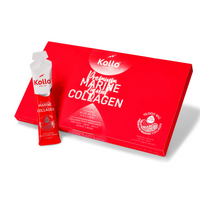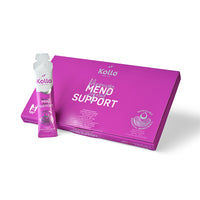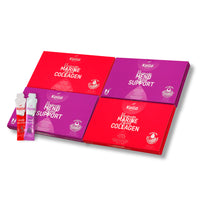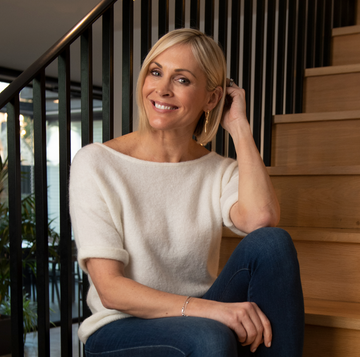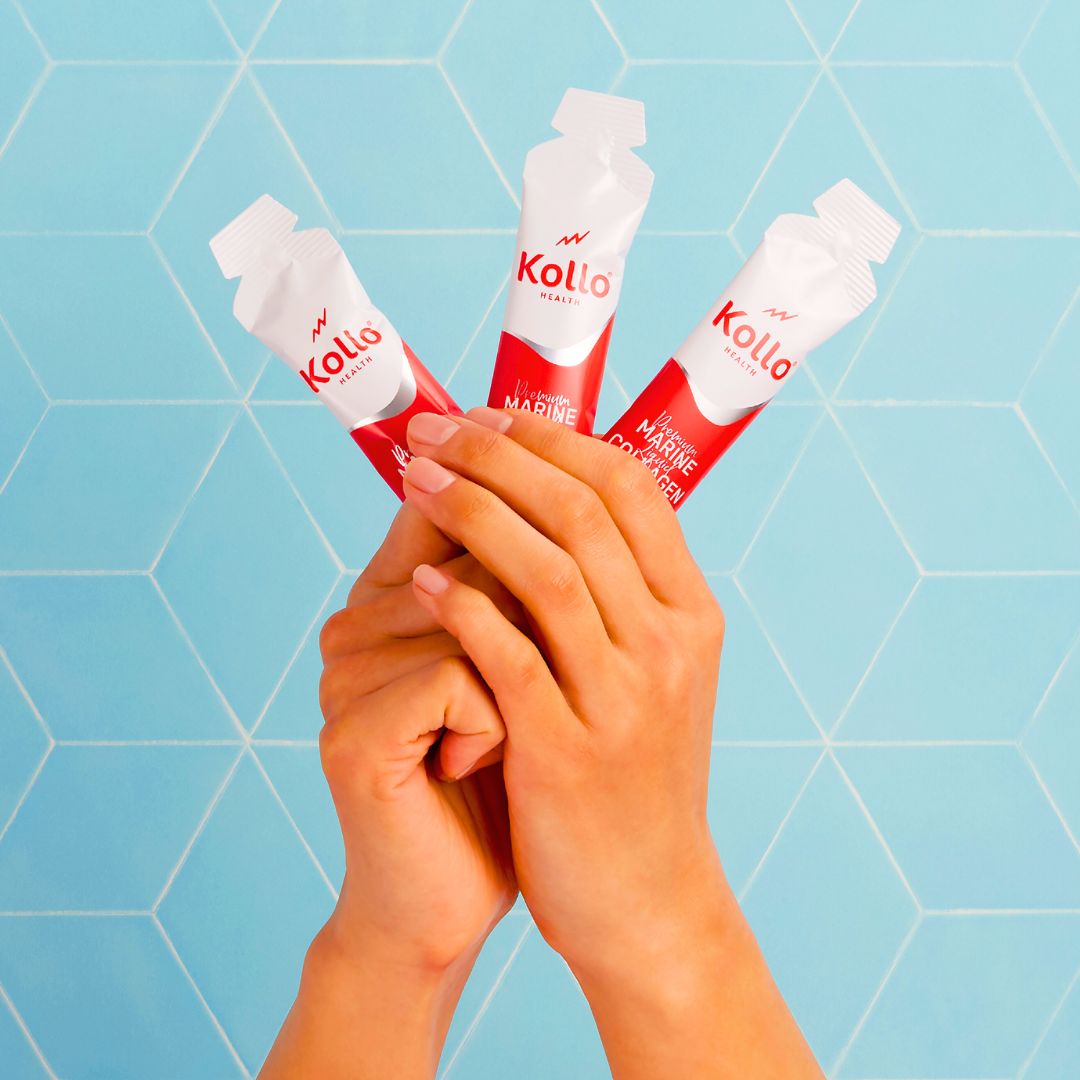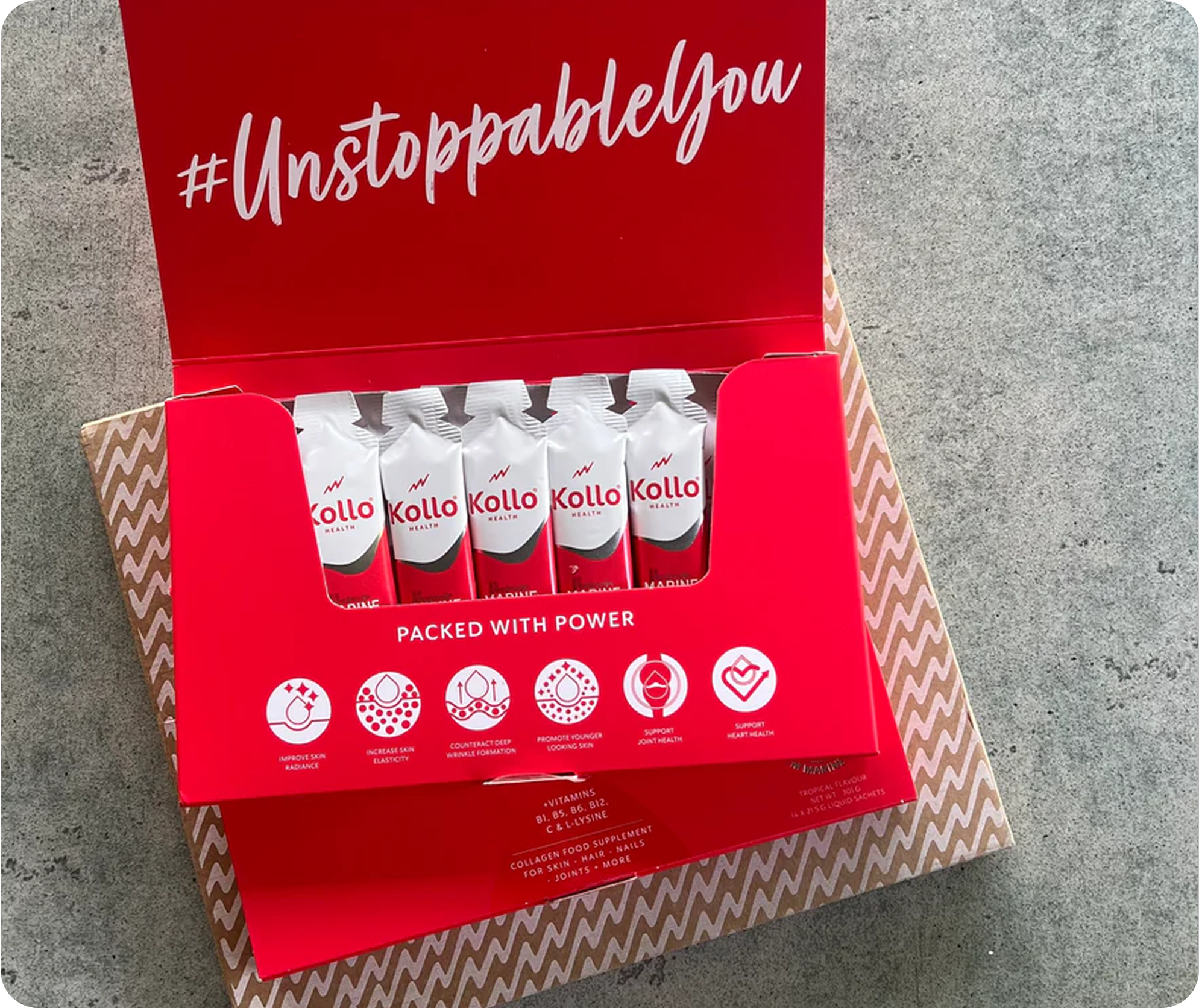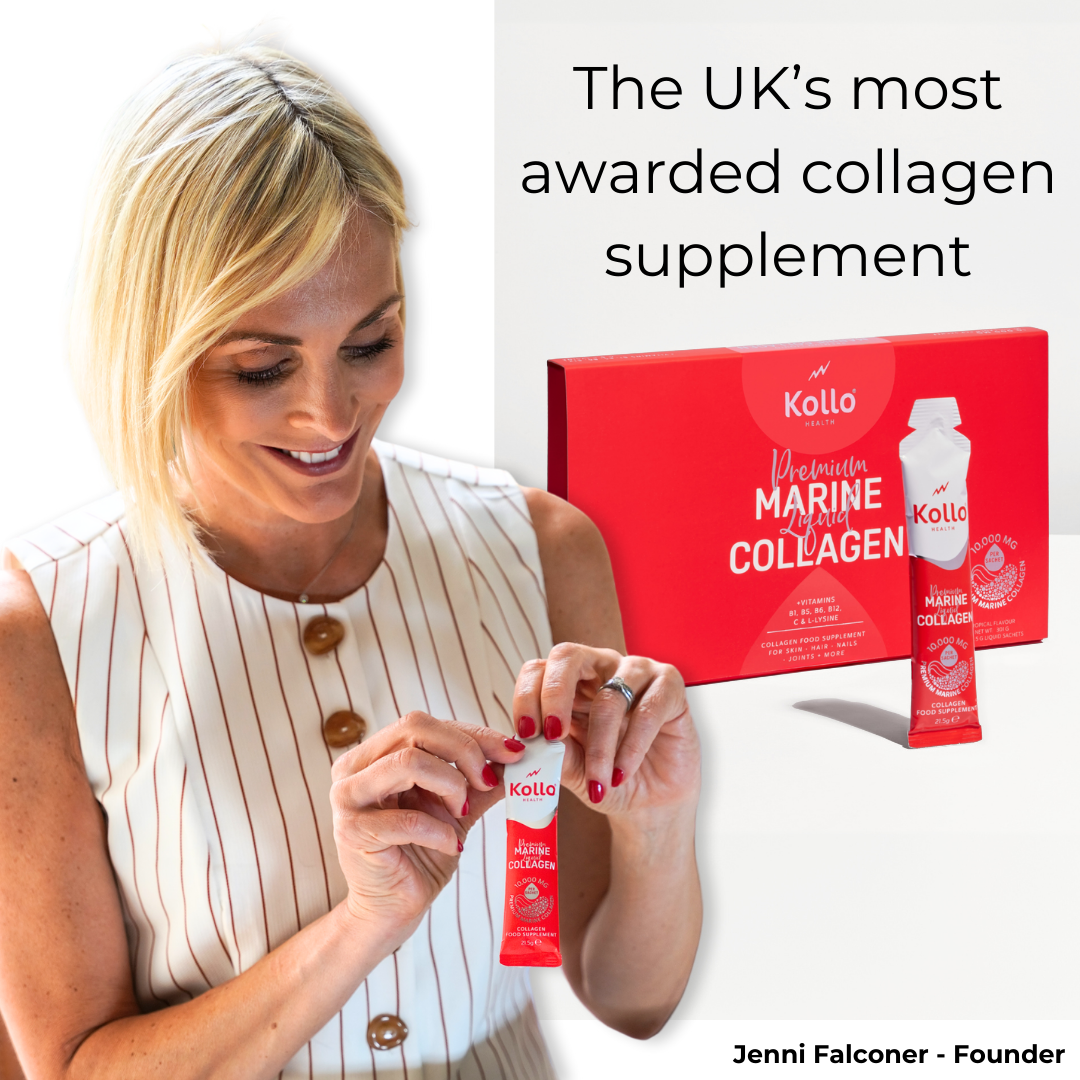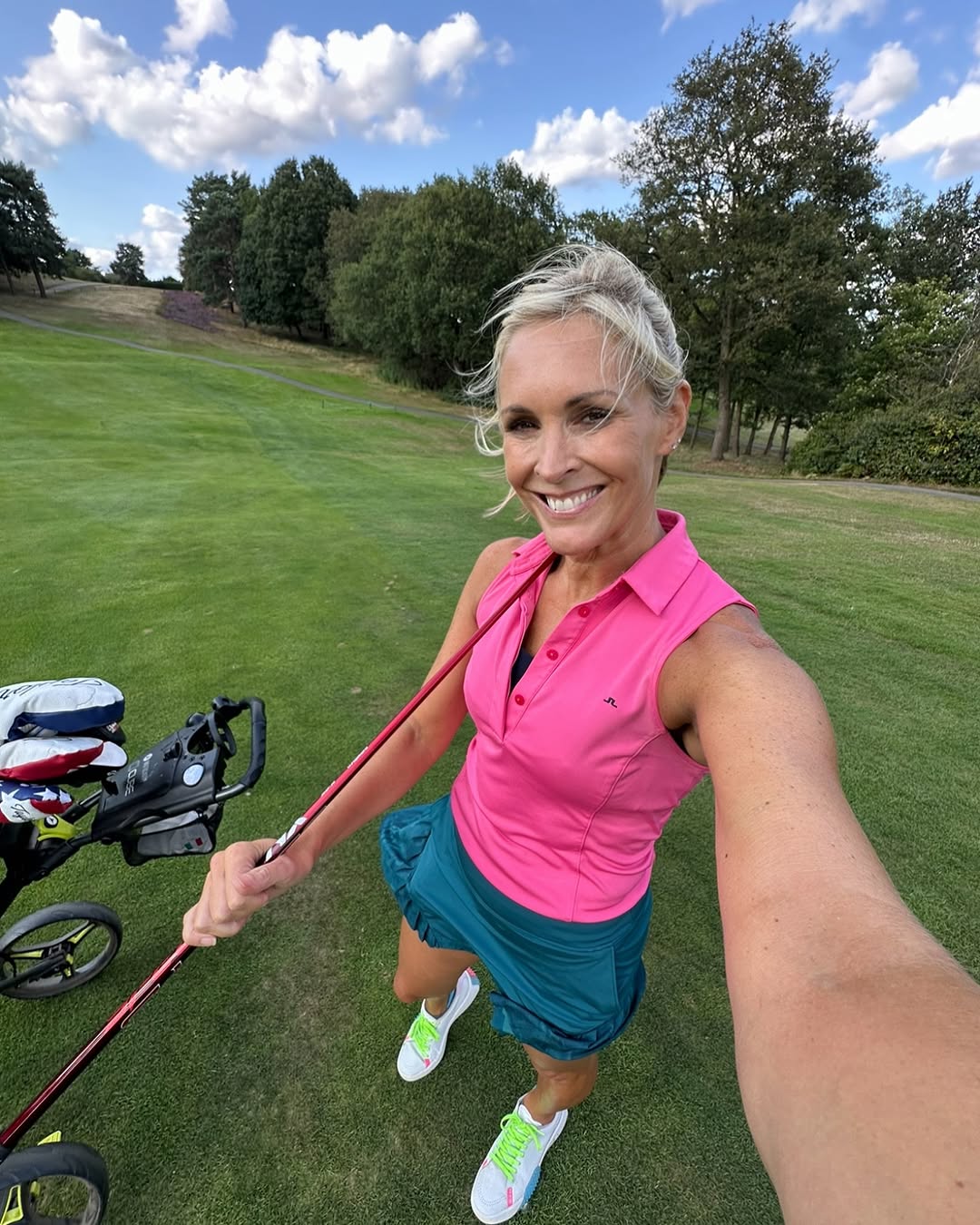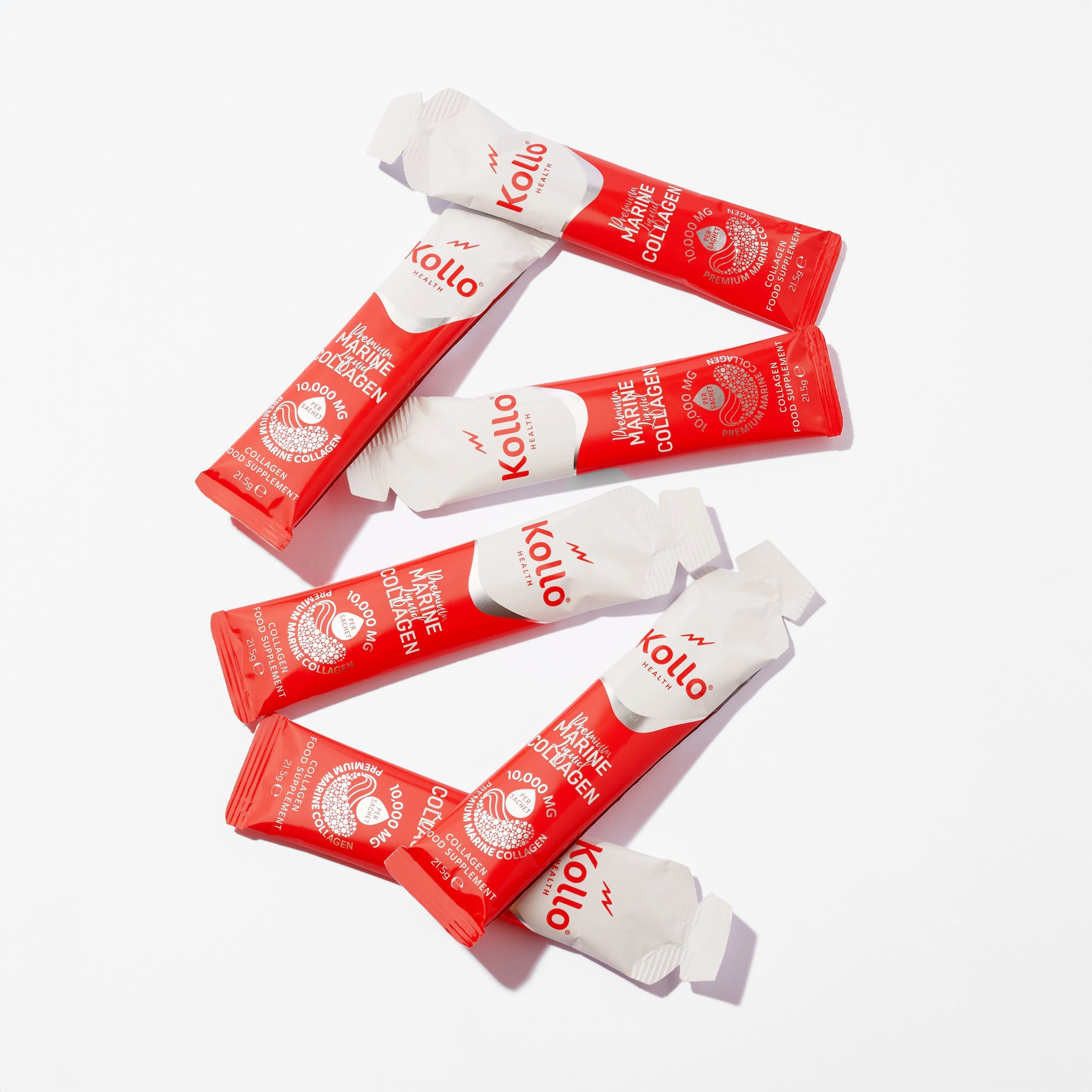Explained: the devastating impact on collagen menopause causes

Explained: the devastating impact on collagen menopause causes
Collagen is the most abundant of the proteins in our bodies. It represents the building blocks that hold all our tissues together. Some think of it like a glue in the fibres of our anatomy – the word is derived from the word ‘kolla’, which is Greek for ‘glue’. Collagen has such strength that even its smallest building blocks have a significantly greater tensile strength than steel. But when it comes to collagen, menopause is a real problem.
With an abundance of healthy collagen in our bodies, we retain supple and youthful skin with strong bones and cartilage. In short, we look and feel our best and our bodies are ready for the stress of day-to-day activity.
The two types of collagen that are most abundant in our bodies are type I and type II:
• Type I: Around 90% of our collagen is type I, and it is found in our skin, bones, ligaments, tendons, cartilage, teeth and connective tissues. Around 80% of the weight of human skin when dry is collagen.
• Type III: This plays a role in the integrity of tissues in muscle, arteries and organs.
The destruction of collagen menopause causes
The demise of bodily collagen brings about many of the early signs of ageing. As we get older, the strength and fullness of our skin diminishes. When you look in the mirror, you will notice more wrinkles appearing, and your skin will get thinner, drier and start to sag. You may also notice joints cracking and aching, unexplained weight gain, a drop in energy levels and more. Behind all these symptoms lies the destruction of collagen.
Skin is, essentially, a single organ in the form of a large sheet. It is composed of cells that form a vast mosaic in total harmony. This description applies to youthful, healthy skin, but that harmony is disrupted as we get older. The thinning of skin begins quite early – often when we enter our thirties. With the passing of time, the fragility of our skin increases and it becomes more vulnerable to bruising and abrasions. You may also notice that it takes longer for wounds to heal.
A particular issue for women
The loss in the fullness and elasticity of our skin is often more pronounced in women during menopause, and there is a very clear collagen-menopause link. In fact, in the 5 years following the onset of menopause, around 30% of skin collagen is lost, and this decline continues at a rate of around 2% per year.
There is often a noticeable change in the appearance of a woman’s skin during this time, and it is directly connected to the drop in oestrogen, which brings about more rapid collagen destruction alongside a decreased ability to synthesise new collagen. Simultaneously, the collagen-rich elastic fibres of the skin also degrade slowly during this time. Skin loses its water content and becomes dehydrated, further exacerbating the issues.
Hormone replacement therapy is a common method for countering this problem. Boosting the levels of oestrogen can mitigate some of the impacts of menopause-related collagen destruction. But if you want to really address the issue, you should also be seeking to increase collagen production as well. This is where collagen supplements come in.
They contain hydrolysed collagen, which is easier for our bodies to absorb than complete collagen molecules. These collagen peptides contain an abundance of the amino acids needed to trigger and fuel increased collagen synthesis. They also often contain complementary nutrients known to nurture our collagen production. Combine this with a balanced diet and healthy lifestyle and you could convert your body into a collagen-producing engine that replaces much of the collagen it loses, helping maintain youthful looks and good health in your connective tissues.
Collagen: menopause causes serious problems for bones
The problems collagen destruction causes for skin are often the first thing we think about in this area. But we have also known since 1940, thanks to the pioneering work of Dr Fuller Albright, that older women with the thinnest skin often simultaneously have osteoporotic fractures. His research at Massachusetts General Hospital, conducted on pigeons, found that if you remove their ovaries, they lose a significant amount of bone density. He also conducted research into the impact of hormones on calcium retention and osteoporosis. It was his work that first identified osteoporosis as a condition of low bone mineral density.
Two decades later, these insights were built upon. It was observed that women who had osteoporosis were also more likely to have substantially thinner skin. It is known that the rate of collagen loss in skin and bone is very similar, and a decline in oestrogen levels has a significant influence on this. Thus the collagen-menopause link causes an equal rate of collagen decline in both skin and bone, causing bone mineral density to decline. The loss of bone density occurs at the fastest rate in the first 5 years of menopause.
A problem that needs to be addressed
The fundamental role of collagen in bone may explain why bone mineral density cannot be the sole predictor of fracture risk. A scan of bone density only predicts bone breaks in around 44% of women and just 21% of men. Mineral content plays a role in the rigidity of bone, but it is the connective tissues that give it its tensile strength.
The collagen fibres in bones are structured in concentric layers that give it the ability to absorb stress and impact. As we age, and as menopause depleted collagen levels, the elasticity and mechanical strength of bone is reduced. This paves the way for an increased risk of fractures and a vulnerability to osteoporosis.
Break the collagen-menopause link with collagen supplements
The destruction of our collagen menopause brings about is pronounced, but collagen supplementation can help bone and skin. This has been demonstrated by scientific studies:
• A 12-month, randomised, double-blind, placebo-controlled study of 131 postmenopausal women who had suffered declines in bone density found that daily intake of 5g collagen peptides brought about improvements.
• A clinical trial involving 51 postmenopausal women with pre-osteoporosis found that 5g of collagen per day for 3 months brought about improvements in the marker CTX, which is known to be linked with declining levels of bone collagen and an increased fracture risk. A decrease in CTX indicates improving bone health.
• A review of 60+ scientific studies involving collagen links with joint pain, osteoporosis, osteoarthritis and ageing skin found that hydrolysed collagen promotes healthy collagen synthesis and tissue regeneration. This means improvements to joints, bones and skin.
Why Kollo stands out from the crowd
When you start looking for collagen supplements to address this collagen-menopause conundrum, you will quickly find that there are many products on the market. Your job is to scour through these options and find the products that will work best for your goals. When targeting the menopause-related symptoms of collagen decline, there are a few important things to remember:
• Around 90% of the collagen in your body is type I. Kollo contains pure, premium-grade marine collagen, which is exclusively type I collagen, broken down into highly bioavailable collagen peptides.
• Collagen synthesis requires this fuel from the amino acids in collagen, but it also requires other nutrients to boost those collagen-producing processes in your body. Kollo also contains B vitamins, vitamin C and l-lysine, all of which are clinically proven to play a role in the synthesis of endogenous collagen.
• The studies that showed positive results for improvements in skin and bone collagen involved a daily dosage of at least 5 grams. Kollo supplies 10 grams of high-quality collagen in every sachet so you can easily get the quantity of nutrients you need.
• To incorporate a collagen supplement into your daily routine, the experience of taking it needs to be positive. Kollo’s liquid formula simply mixes with water so you can drink it. It’s quick, easy and tastes great thanks to our natural tropical flavourings.
Kollo is a multi-award winning supplement that has received over 2,000 5-star customer reviews in less than 3 years of existence. Our product has been featured on ITV This Morning and magazines like Women’s Running, and we have earned both Informed Sport certification and ‘Amazon’s Choice’ status in the world’s biggest online retailer. We are confident you will not find a better collagen supplement for addressing the collagen-menopause problem, and we encourage you to explore our website to learn more about us.
All the information you need
We aim for maximum transparency at Kollo, so we have provided a wealth of information on our website. Learn all about us in the ‘About’ section, look over some of the science in the ‘Studies’ section and read some of our customers’ stories in the ‘Reviews’ section. We also provide a ton of information in our blog, so head over there to learn more about collagen and its wide-ranging benefits.
If you still have questions, please don’t hesitate to contact us via email or social media. Our team would love to hear from you and we will endeavour to answer your queries.
